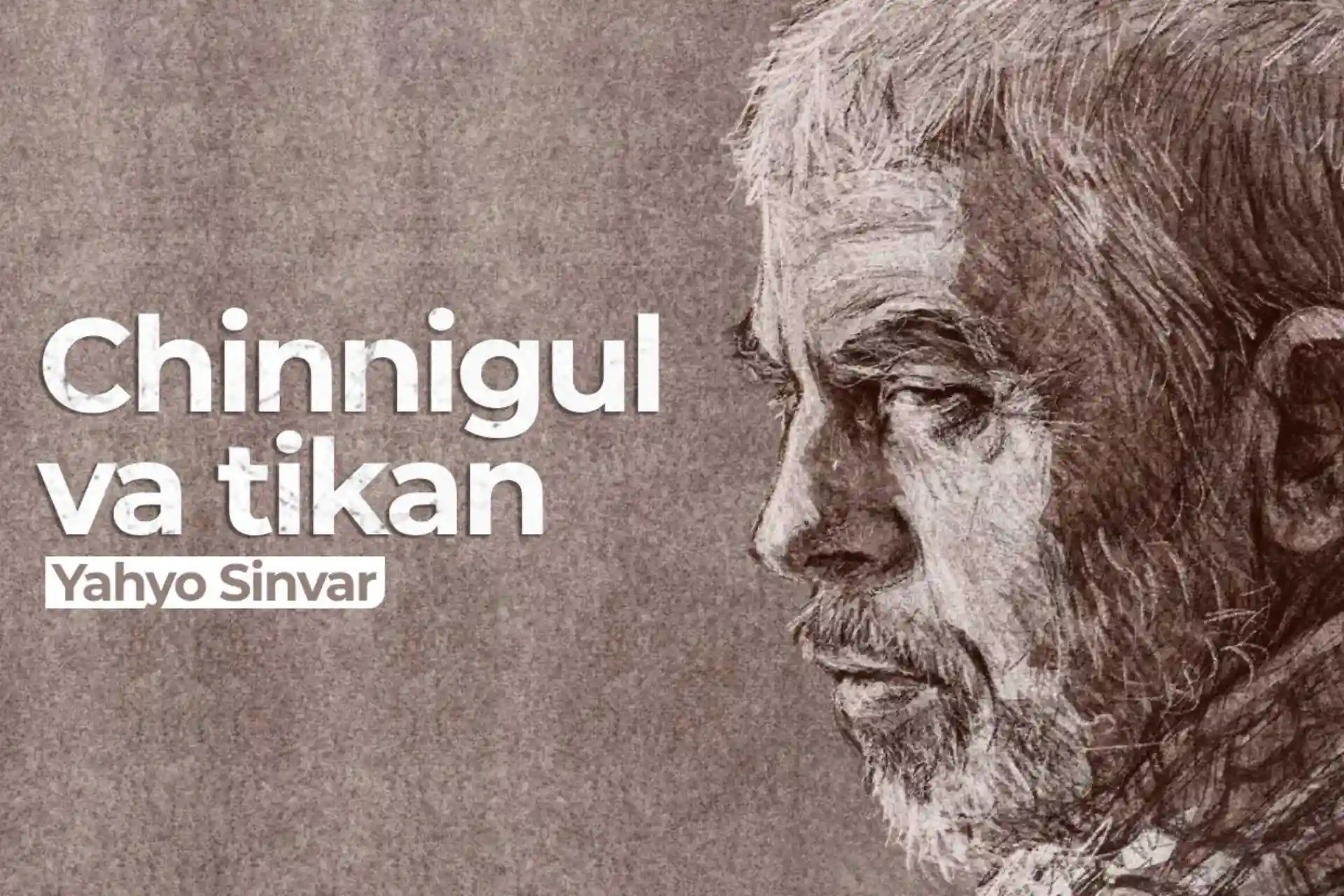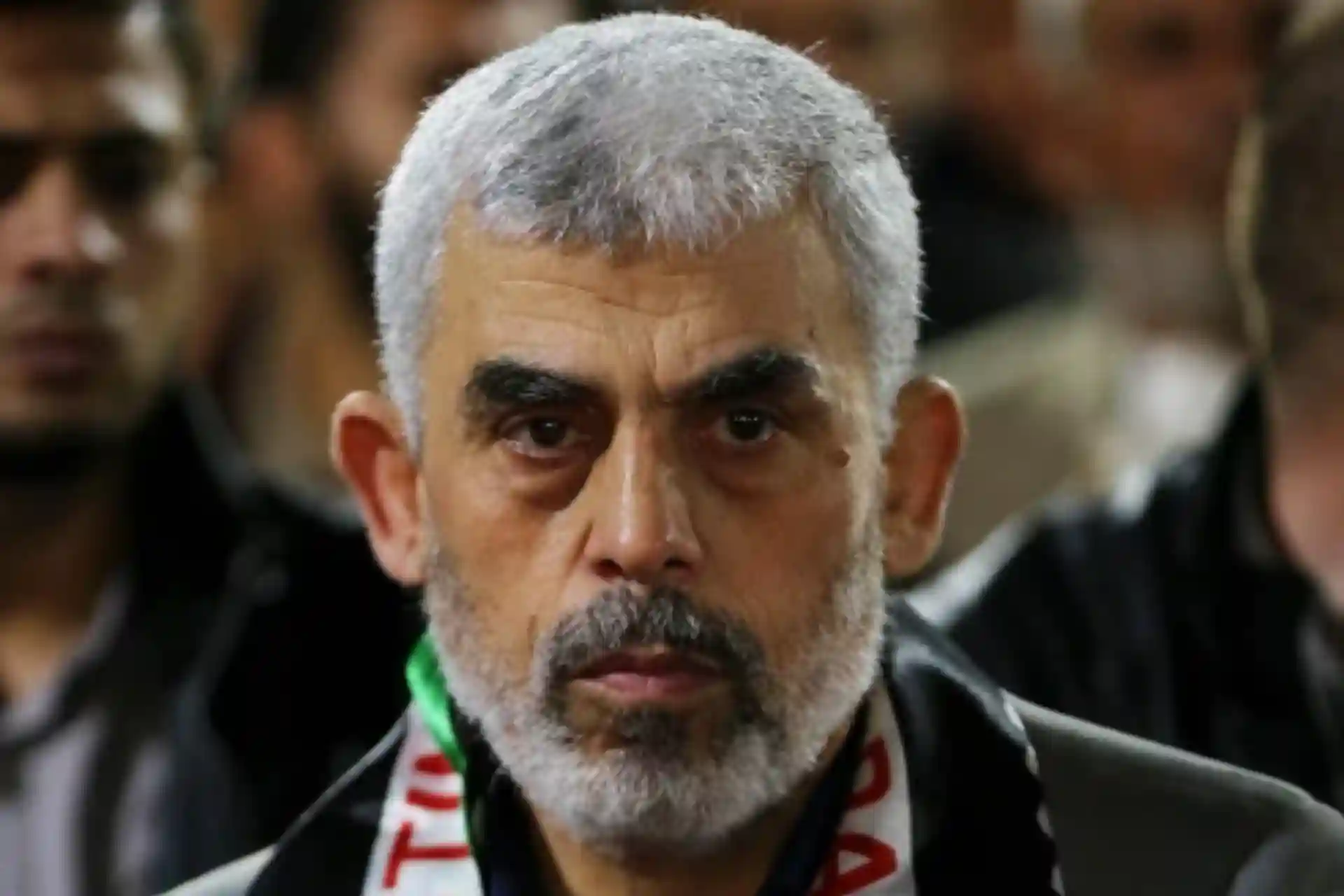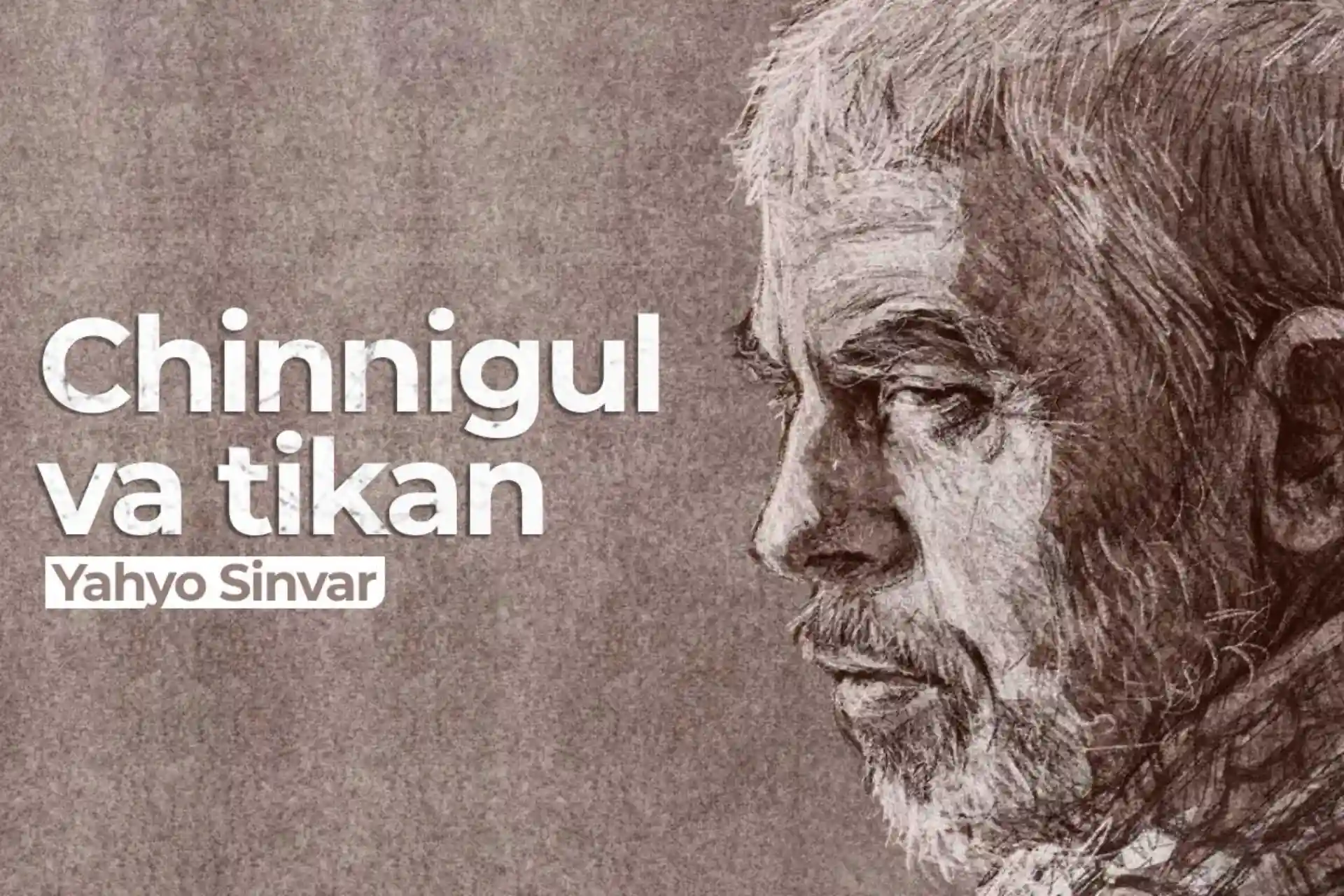"Carnation and thorn" - Yahya Sinvar (short story, part five)
We continue to publish the work "Cloves and Thorns" by the late commander, leader of the Palestinian Hamas liberation movement Yahya Sinwar. The fourth part. Translator - Ma'mur Mukhtar.
Part 1 , Part 2 , Part 3 , Part 4
He put the tray in his hand on the table and went to his children and sat down in front of the kerosene candle. Abu Yusuf and Abu Hatim continued their conversation in whispers. Abu Yusuf asked:
- Are there any survivors from our guys?
- Yes, many of them are alive. Apart from myself, Khan Yunus has Mahir, Rafah has Abu Saqr, and Abu Jihad is in the military. I saw all this with my own eyes. We agreed to start the fight again.
At that time, Abu Yusuf came closer and said, "What about Mukhtar?" What news from him?' - he whispered. Abu Hatim:
- I heard that he is alive. It was said that he lives in the tunnels on the eastern side of Shuja'iyya and in Zaytun. I will try to find it in a few days too. Importantly, we need to start streamlining practice to give a level playing field across the sector. Our guys are almost ready. They are just waiting for one of us to sort it out. We must all gather next Friday morning. We will agree on everything. Salih Mahmoud is releasing his single next Friday. The bride is taken to Khalil. After they leave, the yard is quiet. I agreed with him that he would leave the key of his house under the gate. All the guys gather there. God willing, we will sort things out as soon as possible. You know Salih's house, right? See you there on Friday night. If one of the boys comes late, he knocks on the window as we agreed.
Abu Hatim was listening to Abu Yusuf's words with an olive seed in his mouth.
***
On Friday, we dressed up again and went to my uncle Salih's house. Although we arrived early in the morning, my uncle's courtyard was full of people preparing for the wedding. We young people were busy with entertainment. My brothers Mahmoud and Hasan arranged the chairs, then sprinkled water on the yard and streets so that the dust would not rise. My mother and other women would prepare the bride and put her sarpo in bags. My uncle was running from one place to another at the same time, from the thousandth job to the thousand and one. There were too many people. My aunt's older neighbor and her friends were making their wedding songs louder and clearer. After some time, people from the groom's side arrived in a bus and several cars. People got out of the cars, and our son-in-law (son-in-law) Abdul Fattah entered the front row.
At this time, a famous wedding song in the Safavid dialect was played. My uncle came out with a group of men and met them. Women welcomed women. Sweets and drinks were distributed to the guests. My brother Mahmoud was one of those who served the most. My uncle and his son-in-law and godfather were talking to a group of men I didn't know. About an hour later, my uncle came in and told the bride to get ready to leave. The bridegroom and groomsmen were standing in front of the gate. My aunt came out in a white dress with a white scarf on her head, holding my uncle's wrist. Like a full moon, beauty was added to beauty. Then my uncle gave my aunt to the groom. The voices of the women in the zagru (a style used by Arab women to express the shuku of the celebration orally on the days of the festival) added shuku to the wedding shuku.
The bride and groom were walking towards the car, people were following them. If my mother and my uncle's wife were there, they stood next to my uncle. As soon as the bride and groom got into a special decorated car, the rest of the people also started to board buses and cars. My mother called my brother Mahmoud and said, "Take your brothers and return home with your grandfather." I have prepared everything at home. Take good care of your grandfather and brothers, okay, my child. Lock the door from the inside when the quarantine period begins. Don't open the door at all," he said. Mahmoud was very obedient to my uncle. He shook his head. My mother, my uncle's wife, and my sisters got into the car together with the women. My uncle consulted with his godfather and asked for permission to enter and leave the house. He went straight into the kitchen and left a bag of groceries in the living room. When he was locking the door, he pretended that something had fallen out of his hand, and as he stooped to pick up his things from the floor, he hid the key in the doorway.
Then they got into the car and left. Until the cars were out of sight, wedding tunes could be heard. My grandfather and I returned home in the evening. After playing, running and eating all day, we were completely exhausted, closed the door and fell into a deep sleep.
***
The night took Gaza behind its curtains. Immersed in its depths of darkness, it was so dark that a man could not even see his finger. Sometimes military vehicles passed by, insisting that it was impossible to go out from the main street. When he moved away, silence reigned again. Once in a while, his voice would be heard again when he passed by the highway in his military vehicles.
I woke up to the sound of Baba reading the morning prayer. My brother Mahmoud also got up, woke up the others and started getting ready for school in order not to let my mother know that she was not there. After breakfast, they went to school. My grandfather and I are left. My grandfather did not go to the market that day either. When we went outside after sunrise and enjoyed its beauty, my grandfather told me about his youth. Hossatan spoke pitifully about our wasted country. After some time, he took out a coin from his pocket and said: "Go, my child, get yourself some sweets. Just come back as soon as possible," he said to me. I happily bought some sweets from Abu Khalil's stall and popped one into my mouth on my way back. When I came back and sat next to my grandfather, I asked him, "What did you buy?" - he asked. I showed the sweet in my hand and held one to my grandfather's mouth, and my grandfather laughed loudly. Then he stroked my head saying: "No, these are for you, my child, eat them yourself."
While we were enjoying the warm sun, it was noon. My grandfather said, "Come on, son, we'll go to the mosque to study in the afternoon," holding his cane in one hand and my wrist with the other, he went to the mosque. When my grandfather was doing ablution, I followed him and performed ablution. My grandfather used to feed me with a smile. When Master Hamid came and said: "This child will be a pious child", my grandfather also said: "Insha'Allah-Insha'Allah, Amen!" - he answered.
***
Summer vacation came, and my mother put me on the list to send me to school. After some time, I started to prepare for studying. My mother brought me new shoes then. In fact, it could not be called new, we bought it from a flea market near us that sells used clothes. After a good oiling, it looks like it just came out of the factory. In general, it was like new to me. My mother sewed some of the clothes that were no longer suitable for wearing. So everything for school is now. Especially the things my brothers and sisters used to tell me about lining up in the morning at school, about the teachers, and about the break between classes, increased my interest in school.
***
Before the end of the summer vacation, one of the Palestinian fighters ambushed the Israeli soldiers in an alley near the main street and threw a grenade at them when the military "Jeep" vehicles approached. A military vehicle crashed into a wall and several soldiers were seriously injured. They were wounded and screaming in pain. The Israeli soldiers, caught in a convulsion, fired aimlessly in all directions. Immediately the messenger cars arrived, and as usual, a threatening voice began to sound, telling everyone to enter their homes, and those who remained outside would be shot dead. Dozens of soldiers broke into some houses and started beating people with sticks, regardless of whether they were young or old, male or female. Again the usual brutality began - announcing that all men between the ages of 18 and 60 must go to the school grounds.
The voices on the loudspeaker stopped, and someone started saying that they should not go outside without a loudspeaker, and that the Israeli soldiers could not enter the area of the tents due to the attacks of the fighters from different avenues.
Indeed, most men did not enter the school grounds. Israeli soldiers were only able to evacuate some people from remote areas where they were not in danger. Whenever they approached the area of the tents, they were fired upon by the resistance fighters and retreated in panic. The few people who went to the school grounds were beaten and humiliated even more. So they introduced quarantine again. We didn't go out for a week. During this time, we lived only with beans, adas, and olives. True, there may have been some trepidation mixed in, but it was the sweetest treat we've ever eaten with pride under the protection of our warriors' weapons since the days of prohibition.
After two days, no one ignored the quarantine. People sat talking with neighbors in front of the gate and walked calmly in the alleys located in the center of the camp. Because the Israeli forces did not dare to pass through the ambushes of the resistance fighters and come to the center. Although I had seen many of these warriors, I could not recognize them. The reason is that all of them would have wrapped their heads with shumakh. In fact, it was no longer necessary to search for them, if one of them stood behind this wall with weapons raised, another could be found in the other corner.
I saw my neighbors drinking tea and smoking tobacco in the streets, sharing their feelings and worries. The conquerors bowed down and humiliated their dignity, and they felt a sense of pride. Some of the concerns in their conversations were about the unknown days ahead, and they expressed various fearful thoughts, such as whether the situation would remain like this, whether they should organize stronger attacks on the tents and shoot them with rifles. But one attitude prevailed over all that was said - what do we have to lose? Are these the tents rented by charitable foundations? Then why should we be afraid?!
Often the following thought ended a long conversation with various assumptions:
"My friend, it is a thousand times better for us to breathe without losing our pride and dignity even for a minute than to live a thousand years humiliated under the hands of an invader."
Such practices were happening not only in the camp where we live, but also in all the camps of the Gaza Strip and in many towns and villages. Resistance fighters have spread to different areas of Gaza. Some of them operated as a military unit, and many operated independently. New news about the free men of the homeland began to spread among the local population. However, there were frequent reports about the heroic deeds of our fighters in Jabaliyya camp, one of the camps close to us. Abu Hatim was in this very camp, where he led dozens of young men. People named this camp "Rebellion Camp" because our fighters were victorious in successive battles.
The news spread like wildfire in all the camps. The people's morale was lifted and they became happy, and we children played the "Arab-Jew" game every day. A new rule of the game was drawn up - only the "Arab" team had to win the game.
The third season is over
Ma'mur Mukhtar's translation and continuation.



